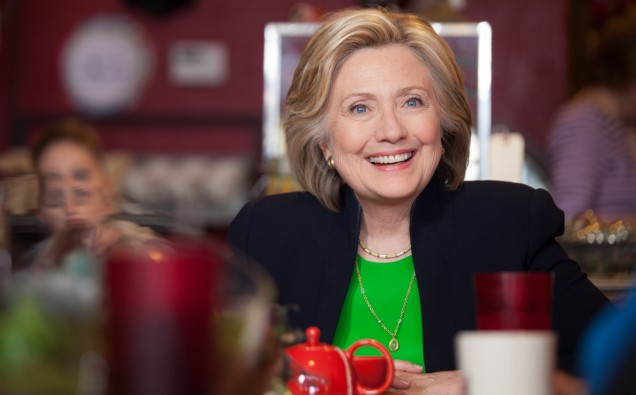
Democratic presidential candidates clashed in a high-stakes debate in Milwaukee to win over African Americans’ and Hispanic votes ahead of polls in southern states as Hillary Clinton hoped to re-set the nomination race after an expected loss to Bernie Sanders in the New Hampshire primary.
Wins in Nevada, which has a large Latino population, and South Carolina where African Americans are big in numbers, will be crucial to the Super Tuesday contests on March 1, when the candidates will have a chance to win maximum number of delegates in a single day. A resounding win that day will boost candidate’s fight for nomination.
With their diverse and familiar demographics, Southern states are seen an amenable turf for Clinton than for Sanders who polled more white votes in a commanding win in New Hampshire. He must now woo more diverse electorates to build on the momentum – a challenging job in view of former president Bill Clinton’s massive following in the African-American community, and Latinos’ expanding support for the Democrats.
As expected, both presidential hopefuls tried to woo minority votes of Latino and the black community even to the extent of agreeing to each other assertions on the issues of criminal justice, racism and unemployment.
“A male African-American baby born today has one in four chance ending up in jail, this is beyond unspeakable,” said Sanders, calling for ending “over-policing” in African American neighborhoods.
The former First Lady “completely” agreed with the self-avowed Senator who had remained independent during his political career. But she went further to identify other “racial discrepancies” and “systematic racisms” in areas like education, jobs and housing.
It was Sanders’ turn to agree. “Nothing, nothing that Secretary Clinton has said do I disagree with.”
The two, however, continued to disagree on more general issues such as health-care and immigration where they stood their ground, playing with mathematical calculation to prove each other wrong on who will gain and who will lose.
Making a second attempt for the Oval Office job, Clinton again displayed her staunch support for policies of President Obama and defending his actions that tend to go well with voters in African communities, where he is very popular.
She did not agree when the anchor said that relations between races did not get better under the first African American President. “I think under President Obama we see a lot of advances…… he has addressed a lot of these issues that have been quite difficult.
Unlike Hillary Clinton, the Senator from Vermont has been critical of President Obama’s reforms like Obamacare and his climate agenda, saying that he could have done better. Knowing he is playing in an arena where many revered Obama, Sanders showed he was not in complete disagreement with the president.
However, Sanders, who beat Hillary Clinton by 22 points in New Hampshire, supported Obama’s executive orders that were to protect up to five million undocumented immigrants from deportation. He was, however, quick to distance himself from the recent deportations targeting Central American women and children.
In a rare moment of disagreement with the President, Clinton took no time to join the Senator in opposing raids, saying that criminals, and not hard working families, be deported.
With traditionally strong constituencies among Latino and African American voters, Hillary Clinton on Feb. 20 at the Nevada and a week later in South Carolina is likely to carry the day as suggested by pre-debate endorsements for Clinton by members of the Congressional Black Caucus.
“I never saw him. I never met him,” Civil rights icon John Lewis said at a news conference of the Congressional Black Caucus PAC, alluding to Sanders’ absence during the 1960s-era movement against segregation. “I was chair of the Student Nonviolent Coordinating Committee for three years, 1963-1966… I met Hillary Clinton. I met President Clinton.”
Her strong showings in Nevada and South Carolina will help Clinton build a momentum and take that into Super Tuesday on March 1 when 14 states – Alabama, Alaska, Arkansas, Colorado, Georgia, Massachusetts, Minnesota, North Dakota, Oklahoma, Tennessee, Texas, Vermont, Virginia and Wyoming – will hold presidential primaries and caucuses on the same day.














